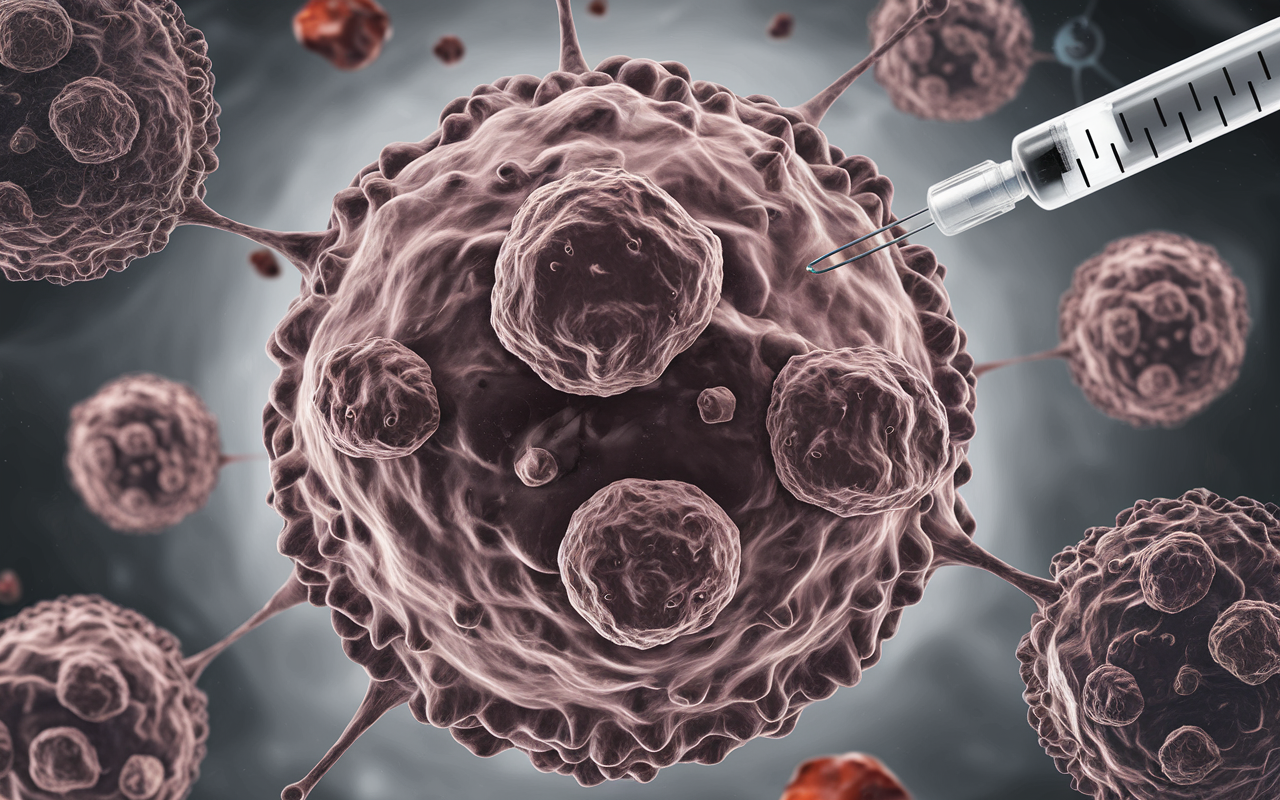Welcome, BioPharma Enthusiasts!
As the biopharmaceutical landscape continues to evolve at a breathtaking pace, I'm thrilled to guide you through some of the most groundbreaking developments shaping our industry today. Let's embark on this educational journey together and explore the innovations that could transform healthcare as we know it.
What's in this issue:
- 🧬 Discover how gene therapy is restoring hearing in deaf patients.
- 💊 Learn about new potential treatments for tuberculosis.
- 🧫 Uncover how existing drugs could offer a promising path against aggressive skin cancer.
- 🔬 Explore a breakthrough in targeting chronic inflammation with a new protein.
Quote of the Day
"Innovation distinguishes between a leader and a follower." — Steve Jobs
Latest Developments
🧬 Gene Therapy Restores Hearing in Deaf Patients (1 minute read)

Rundown: A groundbreaking study involving researchers at Karolinska Institutet has shown that gene therapy can improve hearing in children and adults with congenital deafness or severe hearing impairment. The treatment was well-tolerated, and hearing improved in all ten patients. This collaborative research signals a significant advancement in the application of gene therapy for sensory disorders.
Key Points
- 👂 Gene therapy led to hearing improvement in patients with congenital deafness.
- 🧪 The treatment was safe and well-tolerated among participants.
- 🌐 Collaborative effort between Karolinska Institutet and Chinese universities and hospitals.
- 🧬 Published in the prestigious journal Nature Medicine.
Why it matters: Restoring hearing through gene therapy could revolutionize treatment for those with congenital deafness, offering a new avenue beyond traditional hearing aids or cochlear implants. This advancement underscores the transformative potential of gene therapy in addressing sensory impairments.
💊 Research Opens Up New Avenue for Tuberculosis Drug Discovery (1 minute read)

Rundown: Scientists at the University of Bath have identified two new potential families of drug molecules that could pave the way for innovative treatments for tuberculosis (TB). With TB being the second-largest infectious killer globally after COVID-19, causing 1.3 million deaths annually, this discovery is a critical step towards combating this pervasive disease.
Key Points
- 🦠 Identification of two new families of drug molecules targeting TB.
- 🔬 Potential to develop new treatments against Mycobacterium tuberculosis.
- 🌍 Addresses a significant global health challenge.
- 🧪 Research highlights the ongoing need for novel anti-TB therapies.
Why it matters: The emergence of drug-resistant TB strains makes the development of new treatments imperative. This research offers hope for more effective therapies that could save millions of lives worldwide and curtail the spread of TB.
🧫 Aggressive Skin Cancer Driven by Mitochondrial Processes - Existing Drugs Offer Promising Treatment Path (1 minute read)

Rundown: A new study led by researchers at Lund University in Sweden reveals that certain melanomas are driven by mitochondrial processes. Remarkably, existing drugs that inhibit mitochondrial energy production and antibiotics were able to eliminate cancer cells in preclinical laboratory experiments. This finding opens up promising avenues for repurposing existing medications to treat aggressive skin cancer.
Key Points
- 🧬 Melanoma can be driven by mitochondrial activity.
- 💊 Existing drugs targeting mitochondria successfully eliminated cancer cells in lab tests.
- 🧪 Study offers a potential therapeutic breakthrough for skin cancer treatment.
- 📈 Highlights the value of repurposing drugs to expedite treatment availability.
Why it matters: Leveraging existing drugs to target cancer cells can accelerate the development of effective treatments. This approach could improve outcomes for patients with aggressive melanoma, highlighting a strategic path in the fight against cancer.
Question of the Day
🤔 What biopharmaceutical innovation excites you the most?
- 🧬 Gene therapies transforming treatment possibilities
- 💊 New drug discoveries targeting global diseases
- 🔬 Advances in personalized medicine
Trending
🌐 Study Highlights Major Hurdles for Multinational Clinical Trials in Europe
- Researchers reveal significant ethical, administrative, regulatory, and logistical barriers in delivering multinational randomized clinical trials, emphasizing the need for urgent improvements to prepare for future public health crises.
🧪 Researchers Identify New Protein Target to Control Chronic Inflammation
- A new study from Mass General Brigham identifies a protein called WSTF as a potential target to block chronic inflammation, paving the way for new therapeutic strategies.
🔥 New Model to Find Treatments for an Aggressive Blood Cancer
- University of Birmingham researchers developed a lab model using blood cells from patients with myelodysplastic syndrome (MDS), facilitating faster testing of potential treatments.
Industry Insight
🔬 The Role of Mitochondria in Cancer Treatment
Understanding the energy production mechanisms within cancer cells offers new pathways for treatment. Mitochondria, often known as the powerhouses of the cell, can play a significant role in the progression of certain cancers like melanoma.
By targeting mitochondrial processes, existing drugs could be repurposed to eliminate cancer cells more effectively. This strategy not only accelerates the development of treatments but also reduces the costs associated with drug development.
Embracing such innovative approaches could revolutionize how we tackle aggressive cancers, providing hope for improved patient outcomes.
Quick Hits
🌿 New Study Shows Omega-6 Does Not Increase Inflammation (1 minute read)
- Contrary to popular belief, recent research indicates that linoleic acid (LA), an essential omega-6 fatty acid found in seed oils, does not promote inflammation, offering new insights into dietary impacts on health.
💉 The Most Effective Diabetes Drugs Don't Reach Enough Patients Yet (1 minute read)
- A UCSF analysis highlights that newer, more effective diabetes medications are underutilized, reaching only a fraction of patients who could benefit, signaling a need for better accessibility.
🧬 Researchers Develop Potent CDK9 Inhibitor to Overcome Drug Resistance in Hematological Malignancies (1 minute read)
- Scientists have created a new class of compounds that effectively inhibit both wild-type CDK9 and its drug-resistant mutant form, offering a promising strategy for treating blood cancers.
📊 Study Projects Over 14 Million Preventable Deaths by 2030 if USAID Defunding Continues (1 minute read)
- Analysis warns that U.S. foreign aid cuts could reverse global health progress, potentially leading to millions of preventable deaths due to diseases like HIV/AIDS, malaria, and maternal-child mortality.
🚬 Reports of Young Children Accidentally Eating Nicotine Pouches Rose 763% in Three Years (1 minute read)
- A study in Pediatrics highlights a sharp increase in cases of young children ingesting nicotine pouches, underscoring the need for increased safety measures and awareness.
🏥 Opinion: 25 Years Ago, I Reported on Horrifying Hospital Errors. Here's What's Changed Since Then — and What Hasn't (1 minute read)
- Reflecting on decades of progress and ongoing challenges in patient safety and medical errors within hospitals.
Wrap Up
Thank you for joining me on this journey through the latest in biopharmaceutical innovation. Together, we're staying informed about the breakthroughs that have the potential to transform lives around the globe. If you found this newsletter insightful, I encourage you to share it with your colleagues and friends so we can all stay at the forefront of these exciting developments.
Until next time, stay curious and keep exploring.
Warm regards,
Elliot Reeves | BioPharmaPulse
😊 How did you like today's email?
- 😍 Loved it
- 🙂 It was OK
- 😕 Could be better
